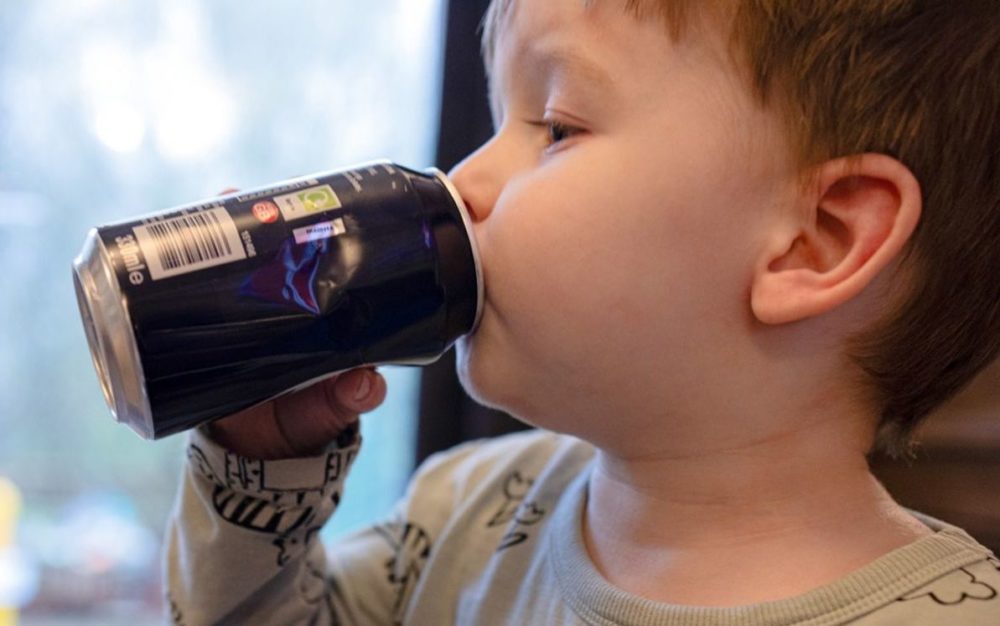Choosing sugary drinks over fruit juice for toddlers linked to risk of adult obesity

Consuming sugar-sweetened drinks in the first few years of childhood can be linked to poor diet patterns that increase the risk of obesity in later life, according to a new study by the School of Psychology at Swansea University.
Published in the European Journal of Clinical Nutrition, the study tracked the influence of diet on 14,000 British children from birth to adulthood and is believed to be the longest of its kind ever reported.
Using the Avon Longitudinal Study of Parents and Children, the research team found:
- Children who drank fizzy drinks such as cola or sugar-sweetened fruit cordials before the age of two gained more weight when they were 24 years old. Girls who had pure fruit juice gained less weight, while the weight of boys remained the same.
- At three years of age, toddlers who drank cola consumed more calories, fat, protein, and sugar but less fibre. In contrast, those given pure apple juice consumed less fat and sugar but higher amounts of fibre.
Links
The study also highlighted corresponding differences in food choices.
Children who consumed pure apple juice often followed a diet with more fish, fruit, green vegetables, and salad, whereas those drinking cola ate more burgers, sausages, pizza, french fries, meat, chocolate, and sweets.
Additionally, the team discovered a link between sugar-sweetened drinks and social deprivation, with children from affluent backgrounds more likely to have access to pure fruit juice.
Lead researcher Professor David Benton said: “The early diet establishes a food pattern that influences, throughout life, whether weight increases.
The important challenge is to ensure that a child develops a good dietary habit: one that offers less fat and sugar, although pure fruit juice, one of your five a day, adds vitamin C, potassium, folate, and plant polyphenols.”
Dr Hayley Young added: “Obesity is a serious health concern, one that increases the risk of many other conditions.
“Our study shows that the dietary causes of adult obesity begin in early childhood and that if we are to control it, more attention needs to be given to our diet in the first years of life.”
Support our Nation today
For the price of a cup of coffee a month you can help us create an independent, not-for-profit, national news service for the people of Wales, by the people of Wales.







We should all be drinking water, not fizzy drinks, squashes and fruit juices, no matter our ages. This is what we should be pushing on children.
Keep the fruit juice for special treats but always mixed with water to reduce acidity. All fizzy stuff, squashes and other processed products are in some ways addictive. Good for trade, not good for long term health.
Totally agree with your comments.
Drinks lobby will have expended a lot of loot into governments to keep the flow of drinks not suitable. Until you tackle lobbying, then the drinks continue.
Unless of course the next government just says enough is enough.
..more like the next government will say “can’t get enough”. They will be happy to let the peddlers of sugar and sweeteners carry on as long as they can cream off a slice of taxation on the sales. Much like the way they treated fags and booze for years. They have managed to reduce fag consumption since around 2005 but some diehards are now hanging onto some sort of perverse libertarian stance in an attempt to block a total ban. Yet they won’t support a ban on NHS hospital treatments for smokers !